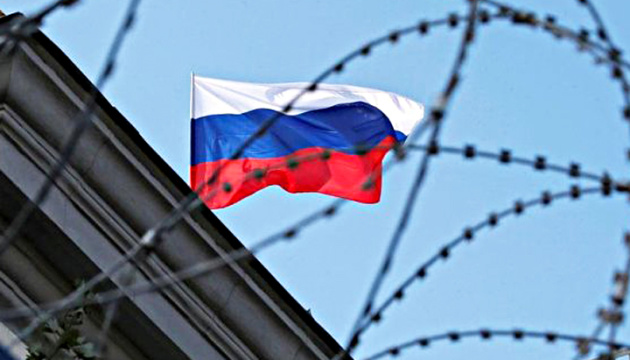

On April 21, the Verkhovna Rada adopted draft law 7194 on the confiscation of russian assets in Ukraine and abroad in the first reading and in general. MPs have laid the idea to increase the effectiveness of sanctions “related to the assets of individuals.” 302 MPs voted in favor of this decision.
The purpose of this draft law, in accordance with the explanatory note, is:
- To establish new grounds and mechanisms for an adequate political and legal response to the actions that enable war crimes, crimes against humanity, and large-scale destruction of civilian infrastructure committed by the Russian Federation on the territory of Ukraine;
- To strengthen the financial and economic basis of the defense capability of the Ukrainian state as one of the guarantees of further deterrence and eventual cessation of armed aggression by the Russian Federation; restoration of civilian infrastructure to minimize the catastrophic humanitarian consequences of its destruction; compensation for the victims of crimes committed by representatives of the aggressor state on the territory of Ukraine.
The Committee on Economic Development proposed not to expand the range of entities subject to the scope of law and decided to adopt the draft law as a basis and in general with this proposal.
In particular, Article 1 of the Law of Ukraine “On Sanctions” will not provide that sanctions will be applied “to any other entities that by their actions created a significant threat to the national security, sovereignty, or territorial integrity of Ukraine (including through armed aggression or terrorist activity) or significantly contributed (including through financing) to the commission of such actions by other entities, including residents within the meaning of the Law of Ukraine “On the Basic Principles of Forced Removal in Ukraine of Objects of Title of the Russian Federation and Its Residents.”
Such a potentially wide list (“any other entities,” “contributed significantly” (in what such a significant contribution was manifested) or “significant threat”, etc.) would blur the understanding of whom this law can or cannot be applied to.
Considering the objectives of the draft law, it is necessary to clearly establish the exceptional grounds, conditions, and mechanism for the recovery of assets by court decision into the national income.
Strengthening the blocking of assets is also necessary. This sanction type is already provided for in the law and has the potential for greater effectiveness.
TI Ukraine recommends improving certain provisions of the draft law. In particular, regarding the definition of the exceptional grounds, special conditions, pre-trial and judicial procedure for the application of a new type of sanction — recovery of assets into the national income. It is also important to outline a clearer range and powers of entities that initiate, make decisions, and implement these types of sanctions, etc.
After all, when it comes to right to property, it is necessary to enshrine regulation at the level of the law. Judicial practice should rather serve as a secondary source. Separately, additional thought should be given to the protection of the rights of third parties and compliance with the standards of the European Court of Human Rights, including to increase the chances of introducing this new mechanism abroad.
The procedure defined in the draft law does not yet belong to any of the types of processes (administrative, civil, etc.).
It seems that in this case, the administrative procedural law will be the most appropriate, although in some cases it can also be attributed to civil law. Be that as it may, for proper implementation, the relevant procedural code needs to be amended.
The explanatory note mentions the strict limitation of the period of application of sanctions during martial law. However, the draft law itself establishes that cases initiated during the martial law and in which no final decision has been made, are considered in the manner prescribed by this law.
It is for the judge of the High Anti-Corruption Court to hear such cases. First, in terms of its tasks, the HACC was not chosen as the most successful implementer of such a role. Secondly, the law outlined the time limits for the HACC judge to decide on the application of sanctions — 10 days. During this time, it will be necessary to establish the owner and manager of the asset, the appropriate legal connection, etc.
This process is also complicated by the fact that the draft law does not yet determine what standard of proof should be used. The Anti-Corruption Court will have the primary responsibility for making the decision: to agree on sanctions or to refuse the application submitted by the National Agency on Corruption Prevention.
It may also be a significant challenge for the NACP to prepare and submit an appropriate application for sanctions to be imposed, given the body’s somewhat different mandate. The NACP is not a law enforcement agency. In the exercise of powers to find and trace the assets subject to blocking, the NACP exercises all the rights granted to it by the Law of Ukraine “On Prevention of Corruption.” However, this does not fully address the risks, but instead adds doubts about the proportionality of the use of such powers. By the way, the Law “On Prevention of Corruption” was not amended regarding the mandate of the Agency by the draft law.
Prosecutors of the Prosecutor General’s Office could strengthen this procedure. Given their experience and closer legislative powers, they may be more familiar with the activities currently assigned to the NACP.
In order to achieve the ambitious goals of this law, according to TI Ukraine, this positive idea should be finalized.
It is important to improve the introduced mechanism and register such a draft law in the near future. Thus, Ukrainians will be able to assess the quality of systemic solutions and their consequences.
It is important to improve the introduced mechanism and register such a draft law in the near future. Thus, Ukrainians will be able to assess the quality of systemic solutions and their consequences.






